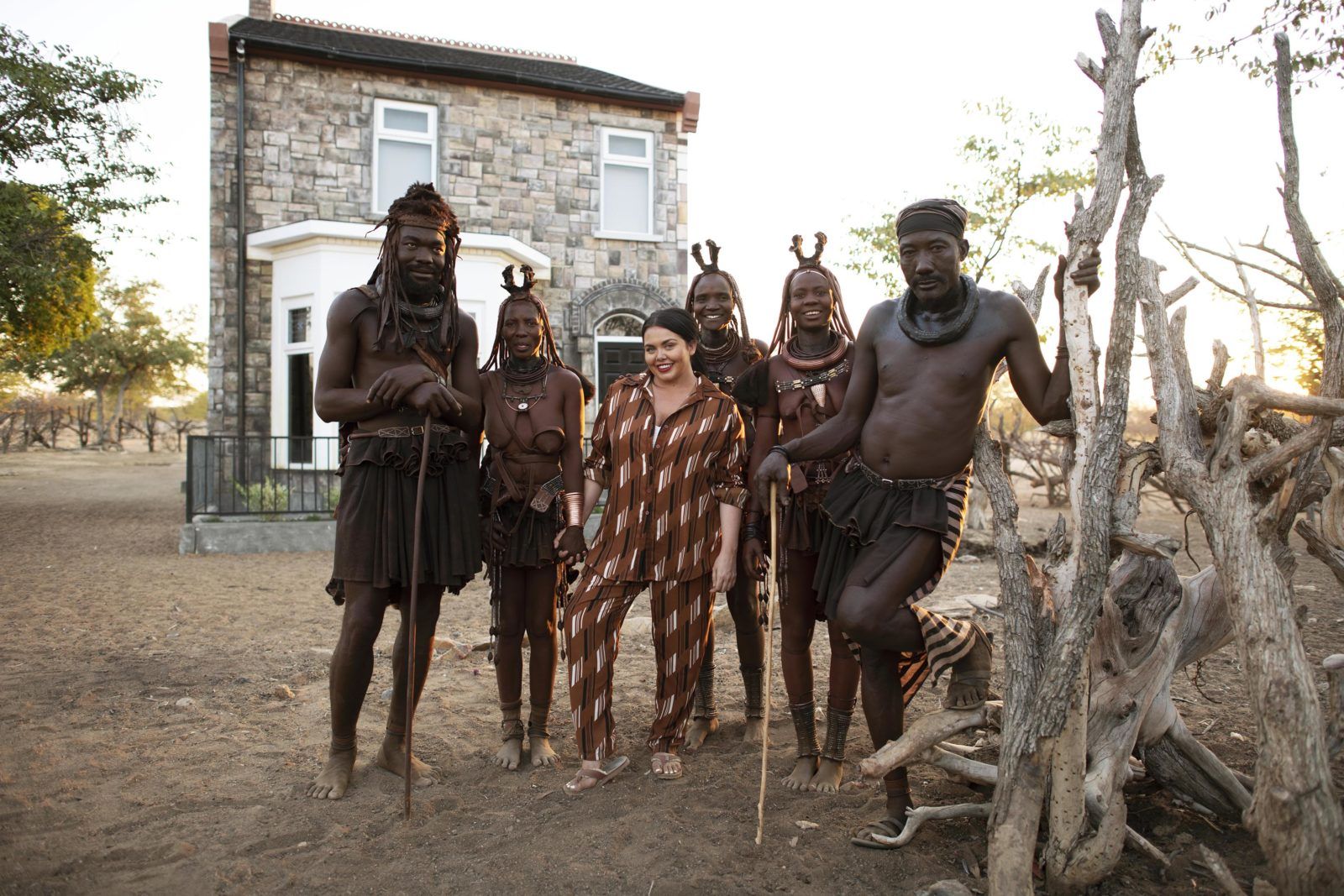On paper, the idea of a British family jetting off to live with a Namibian tribe, accompanied by a complete replica of their semi-detached home, sounds like a pretty absurd idea. In reality, it is still baffling. In Channel 4’s latest anthropological experiment, The British Tribe Next Door, Scarlett Moffat (the Geordie lass whose claim to fame is sitting on a sofa saying fairly amusing things on Gogglebox) and her not-so-famous family, decide to spend a month living alongside the semi-nomadic Himba tribe. So, do the Moffats use this opportunity to explore the deep cultural chasms between them and Namibia’s indigenous people? Do they ultimately succeed in connecting through the common ground of humanity of which we all share?
Not quite. Instead, the family fail to fully experience the Himba’s modest and hardworking lifestyles, and I cannot help but feel that they lack any decent level of inquisitivity – how can they when they can simply pop back into their open plan kitchen for a cuppa when they fancy? Kitted out with electricity, running water and wifi, the house sits brazenly among the tribe’s mud huts. It’s hard not to perceive this as a quite literal ‘us-and-them’ dichotomy, between ‘civilised’ and ‘uncivilised’. At the very least it depicts the family as reluctant to genuinely connect with another culture, and at the most it dangerously reinforces an uncomfortably archaic sentiment.
Of course, this tone of separatism would not have been the intention of the Moffats, and certainly not of the often branded ‘progressive’ Channel 4. And, to be fair to them, this anthropological experiment does bring us a few genuinely insightful moments. Most notably, the Himba women draw on the unnecessarily indulgent lives of the Moffat family, who simply cannot comprehend why Scarlett needs so many shoes, or why Betty (Scarlett’s mother) is washing seemingly clean clothes in the washing machine.
The Himba women, who traditionally dress with uncovered breasts, also talk of the pride they have over their bodies, something which Scarlett, and indeed many other British women will struggle to relate to. In this case, The British Tribe Next Door taps into the deep-rooted obsession with body image in British society, an issue which is quite clearly absent from the Himba’s community.
But, unfortunately, that is as far as any praise can go. I cannot help but feel conflicted over the tone of this programme, which is peppered with moments of the family gawping at the foreignness of the tribe. As Scarlett, her mother, Betty, father, Mark, and younger sister, Ava-Grace, arrive at the Himba village, we hear Scarlett ask with genuine concern: “Do you know what I’m really thinking about? Where are they getting toilet roll from? How are they making toilet roll? Do you know what I mean?”
The ignorance escalates. We see Scarlett accompany the Himba women on their daily task of collecting water, a necessity which has become increasingly scarce due to continuous drought. A few minutes later: a clip of Betty blatantly leaving the tap running while she completes other household tasks, while the Himba’s more basic huts are poignantly framed by the kitchen window. Although there is nothing overtly offensive about the Moffat family, moments like this highlight why they simply are not equipped to deal with such a sensitive concept.
It is evident that the Moffats’ intentions in visiting the Himba tribe were good, and we do see this in Scarlett’s friendly and open nature towards the community. But this fails to mask the fact that the concept is implicitly racist, by essentially reinforcing a cliched portrayal of a one-dimensional Africa which firmly belongs in the past.
Channel 4 could have used this show to expand viewers’ worldview, but instead we are only offered a surface level insight into who the Himba people really are. It seems they are mostly used for the Moffats to ogle over, and the family fail to ask any meaningful questions about the community. Their comically obnoxious two-storey house adds to the controversy of this programme and I am left baffled as to how it ever came to air.
Image Credit: inews.co.uk

